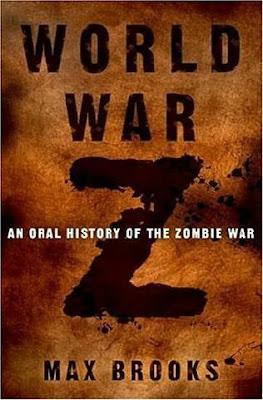"After Hell" & The Paradise of Audio Drama

Labels: audio drama, Cyclopedia Of Worlds, horror, media production, sci-fi

Labels: audio drama, Cyclopedia Of Worlds, horror, media production, sci-fi
Labels: horror

Labels: horror

QUINT: (pointing to the tattoo) That's the U.S.S. Indianapolis.HOOPER: (breathless) You were on the Indianapolis?BRODY: What happened?
QUINT: Japanese submarine slammed two torpedoes into her side, Chief. We was comin' back from the island of Tinian to Leyte. We'd just delivered the bomb. The Hiroshima bomb. Eleven hundred men went into the water. Vessel went down in twelve minutes. Didn't see the first shark for about a half-hour. Tiger. thirteen-footer. You know how you know that in the water, Chief? You can tell by lookin' from the dorsal to the tail. What we didn't know...was that our bomb mission was so secret, no distress signal had been sent. They didn't even list us overdue for a week. Very first light, Chief, sharks come cruisin' by, so we formed ourselves into tight groups. It was sorta like you see in the calendars, you know the infantry squares in the old calendars like the Battle of Waterloo and the idea was the shark come to the nearest man, that man he starts poundin' and hollerin' and sometimes that shark he go away... but sometimes he wouldn't go away. Sometimes that shark looks right at ya. Right into your eyes. And the thing about a shark is he's got lifeless eyes. Black eyes. Like a doll's eyes. When he comes at ya, he doesn't even seem to be livin'... until he bites ya, and those black eyes roll over white and then... ah, then you hear that terrible high-pitched screamin'. The ocean turns red, and despite all your poundin' and your hollerin' those sharks come in and... they rip you to pieces You know, by the end of that first dawn, we lost a hundred men. I don't know how many sharks there were, maybe a thousand. I do know how many men, they averaged six an hour. Thursday mornin', Chief, I bumped into a friend of mine, Herbie Robinson from Cleveland. Baseball player. Boson's mate. I thought he was asleep. I reached over to wake him up. He bobbed up, down in the water, he was like a kinda top. Up-ended. Well...he'd been bitten in half below the waist. At noon on the fifth day, a Lockheed Ventura swung in low and he spotted us, a young pilot - a lot younger than Mr. Hooper here - anyway, he spotted us and a few hours later a big ol' fat PBY come down and started to pick us up. You know, that was the time I was most frightened. Waitin' for my turn. I'll never put on a lifejacket again. So, eleven hundred men went into the water. 316 men come out, the sharks took the rest, June the 29th, 1945.(with a smile - or a sneer?)Anyway, we delivered the bomb.
Labels: Great Movie Monologues, horror, movies
Labels: horror
 Max's follow-up book, "World War Z: An Oral History Of The Zombie War" is now available for study. Last September, even before the book was on the shelves, the film rights to "World War Z" were the object of a massive bidding war between the production companies of Leonardo Di Caprio and Brad Pitt. Brad won - by shooting Leo's agent through the head with a speargun. That's the only way you can kill them.
Max's follow-up book, "World War Z: An Oral History Of The Zombie War" is now available for study. Last September, even before the book was on the shelves, the film rights to "World War Z" were the object of a massive bidding war between the production companies of Leonardo Di Caprio and Brad Pitt. Brad won - by shooting Leo's agent through the head with a speargun. That's the only way you can kill them. Max had been training for years to write "The Zombie Survival Guide". He was a history major in college and an Army ROTC student. "Most of ROTC was basically survival skills," he said. It might as well have been zombie apocalypse survival school. He wasn't just making it up when he said that the M-16 was a crummy gun that was destined to be a liability when the zombies arrived. He had fired M-16's and learned first-hand why they were undesirable and what was the better alternative was. M-16 fans on the net are miffed at his appraisal of the gun. But who'll be laughing when the zombies come? Max also dipped back into his ROTC survival manual when writing the chapters on the zombie threat in various terrains.
Max had been training for years to write "The Zombie Survival Guide". He was a history major in college and an Army ROTC student. "Most of ROTC was basically survival skills," he said. It might as well have been zombie apocalypse survival school. He wasn't just making it up when he said that the M-16 was a crummy gun that was destined to be a liability when the zombies arrived. He had fired M-16's and learned first-hand why they were undesirable and what was the better alternative was. M-16 fans on the net are miffed at his appraisal of the gun. But who'll be laughing when the zombies come? Max also dipped back into his ROTC survival manual when writing the chapters on the zombie threat in various terrains.
Labels: horror
 Today is the summer solstice, the longest day of the year. There are more hours of daylight today than on any other day. This phenomenon is caused by the sun's swelling to more than seven times its normal circumference. The resulting increase in electromagnetic output naturally increases the number of hours and minutes that it is daylight we have at this particular time of our lives.
Today is the summer solstice, the longest day of the year. There are more hours of daylight today than on any other day. This phenomenon is caused by the sun's swelling to more than seven times its normal circumference. The resulting increase in electromagnetic output naturally increases the number of hours and minutes that it is daylight we have at this particular time of our lives. - Take a flask of blood to bed with you and if you feel peckish prior to sunset take sips in moderation to get you through to nightfall.
- Feed thoroughly on multiple full-hearted fresh victims the night before, this also can help to keep you from waking hungry. A shocking number of injuries occur from evening falls caused by - quite unnecessary - low blood blood sugar.
- Capture and chain up your victim near your resting place so that when you wake you can immediately "tuck in".
- If you must leave your lair before it is fully dark, wear a hat - sombreros are surprisingly effective.
- Accept that this is a stressful time; talk with your fellows about it and don't be afraid of admitting your own anxiety. You will find that you're not the only one who feels that way.
- If you find the summer solstice too upsetting, consider seasonal migration. Many have found it beneficial to spend June and July in the Southern Hemisphere and the December holiday season in the far North, thus taking full advantage of the dark hours each hemisphere has to offer. One enterprising fellow we know spent a long dark winter in Antarctica posing as an ornithology student observing penguins.
- Don't become depressed; use this time for reflection on your own immortality and when you find yourself resenting bikini-clad hotties and muscle-bound volleyball jocks bound for the beach, imagine the looks on their faces as you unsheathe your pearly fangs and descend like a vengeful wraith to suck the life from their bodies as, paralyzed, they shriek for mercy.
- Drink plenty of water.

1 And I stood upon the sand of the sea, and saw a beast rise up out of the sea, having seven heads and ten horns, and upon his horns ten crowns, and upon his heads the name of blasphemy.
2 And the beast which I saw was like unto a leopard, and his feet were as the feet of a bear, and his mouth as the mouth of a lion: and the dragon gave him his power, and his seat, and great authority.
3 And I saw one of his heads as it were wounded to death; and his deadly wound was healed: and all the world wondered after the beast.
4 And they worshipped the dragon which gave power unto the beast: and they worshipped the beast, saying, Who is like unto the beast? who is able to make war with him?
5 And there was given unto him a mouth speaking great things and blasphemies; and power was given unto him to continue forty and two months.
6 And he opened his mouth in blasphemy against God, to blaspheme his name, and his tabernacle, and them that dwell in heaven.
7 And it was given unto him to make war with the saints, and to overcome them: and power was given him over all kindreds, and tongues, and nations.
8 And all that dwell upon the earth shall worship him, whose names are not written in the book of life of the Lamb slain from the foundation of the world.
9 If any man have an ear, let him hear.
10 He that leadeth into captivity shall go into captivity: he that killeth with the sword must be killed with the sword. Here is the patience and the faith of the saints.
11 And I beheld another beast coming up out of the earth; and he had two horns like a lamb, and he spake as a dragon.
12 And he exerciseth all the power of the first beast before him, and causeth the earth and them which dwell therein to worship the first beast, whose deadly wound was healed.
13 And he doeth great wonders, so that he maketh fire come down from heaven on the earth in the sight of men,
14 and deceiveth them that dwell on the earth by the means of those miracles which he had power to do in the sight of the beast; saying to them that dwell on the earth, that they should make an image to the beast, which had the wound by a sword, and did live.
15 And he had power to give life unto the image of the beast, that the image of the beast should both speak, and cause that as many as would not worship the image of the beast should be killed.
16 And he causeth all, both small and great, rich and poor, free and bond, to receive a mark in their right hand, or in their foreheads:
17 and that no man might buy or sell, save he that had the mark, or the name of the beast, or the number of his name.
18 Here is wisdom. Let him that hath understanding count the number of the beast: for it is the number of a man; and his number is Six hundred threescore and six.
Labels: horror